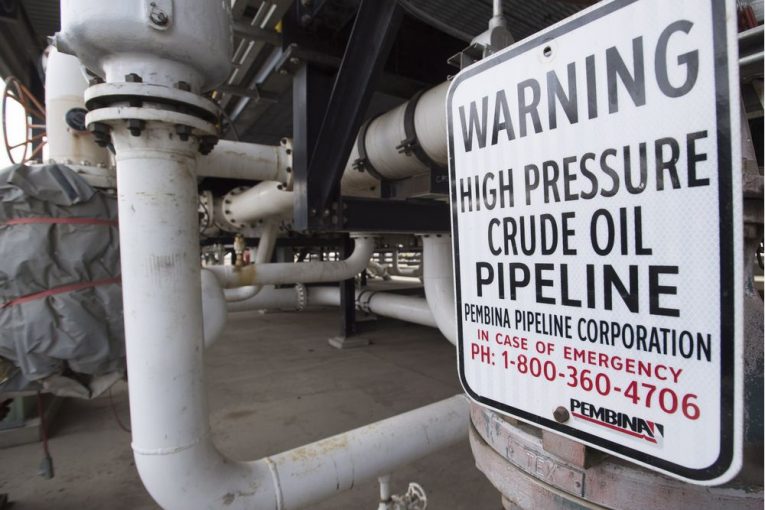
A lawyer representing British Columbia in its fight against the Trans Mountain pipeline expansion says the federal cabinet’s approval of the project is “lopsided” because it put Alberta’s economic needs ahead of B.C.’s concerns about oil spills.
Thomas Berger said outside the Federal Court of Appeal on Thursday that the $7.4-billion project would disproportionately impact the interests of B.C. residents in the event of a marine spill of diluted bitumen.
While Alberta would get the lion’s share of benefits through development of its oil resources and access to Pacific Rim markets, B.C. would bear the entire environmental risk, he told The Canadian Press in an interview.
In its approval of the project last November, the governor in council breached its statutory duty to provide reasons for deciding it was not likely to cause significant adverse environmental effects, Berger said on behalf of the attorney general of B.C., which is an intervener in the case.
“The governor in council made its choice but it did not give any reasons. All we got was the conclusion. It’s like getting a judge’s verdict without getting any reasons,” Berger said.
“I urged the court to rule that the cabinet had to obey the command of Parliament, which is the order in council must set out the reasons for making the order,” the former B.C. Supreme Court judge said.
“I told the court, ‘This isn’t technical, it’s fundamental,’ ” Berger said.
The federal government’s explanatory note accompanying the order in council approving Trans Mountain says detailed reasons for the decision are set out in four reports, including one by the National Energy Board.
“The citizen shouldn’t have to search through hundreds of documents to find out the reason why the cabinet made the choice it did,” Berger said. “That’s why Parliament said cabinet’s reasons must be set out in the order in council.”
Alberta, which favours the pipeline project on the grounds it would create jobs and investment opportunities, is scheduled to make its arguments in the Federal Court of Appeal next week.
Several First Nations, two environmental groups and the cities of Vancouver and Burnaby are also against the pipeline expansion that the federal government approved last November.
Indigenous groups have maintained a seven-fold increase in tanker traffic would substantially increase the risks of diluted bitumen spills, with no known means of adequately cleaning it up, and put endangered southern resident killer whales in peril.
First Nations groups also say the federal government failed to adequately consult them or gain their consent for expanding the pipeline.
Trans Mountain, a subsidiary of Kinder Morgan Canada, aims to double an existing Alberta-to-B.C. pipeline with nearly 1,000 more kilometres of pipeline in new and existing corridors.
British Columbia’s former Liberal government supported the project, saying Kinder Morgan had met five government conditions including a revenue-sharing agreement worth up to $1 billion.
However, the New Democrat government, which formed an alliance with the Green party to support its minority government this year, has said it would oppose the pipeline expansion.
Earlier Thursday, TransCanada announced it had cancelled its plans for the $15.7-billion Energy East pipeline, which was to carry oil from Alberta and Saskatchewan to refineries in Quebec and New Brunswick.
Last September, the Federal Court of Appeal overturned Ottawa’s approval of Enbridge’s Northern Gateway pipeline project, two years after the federal cabinet granted a permit.
You can read more of the news on source
